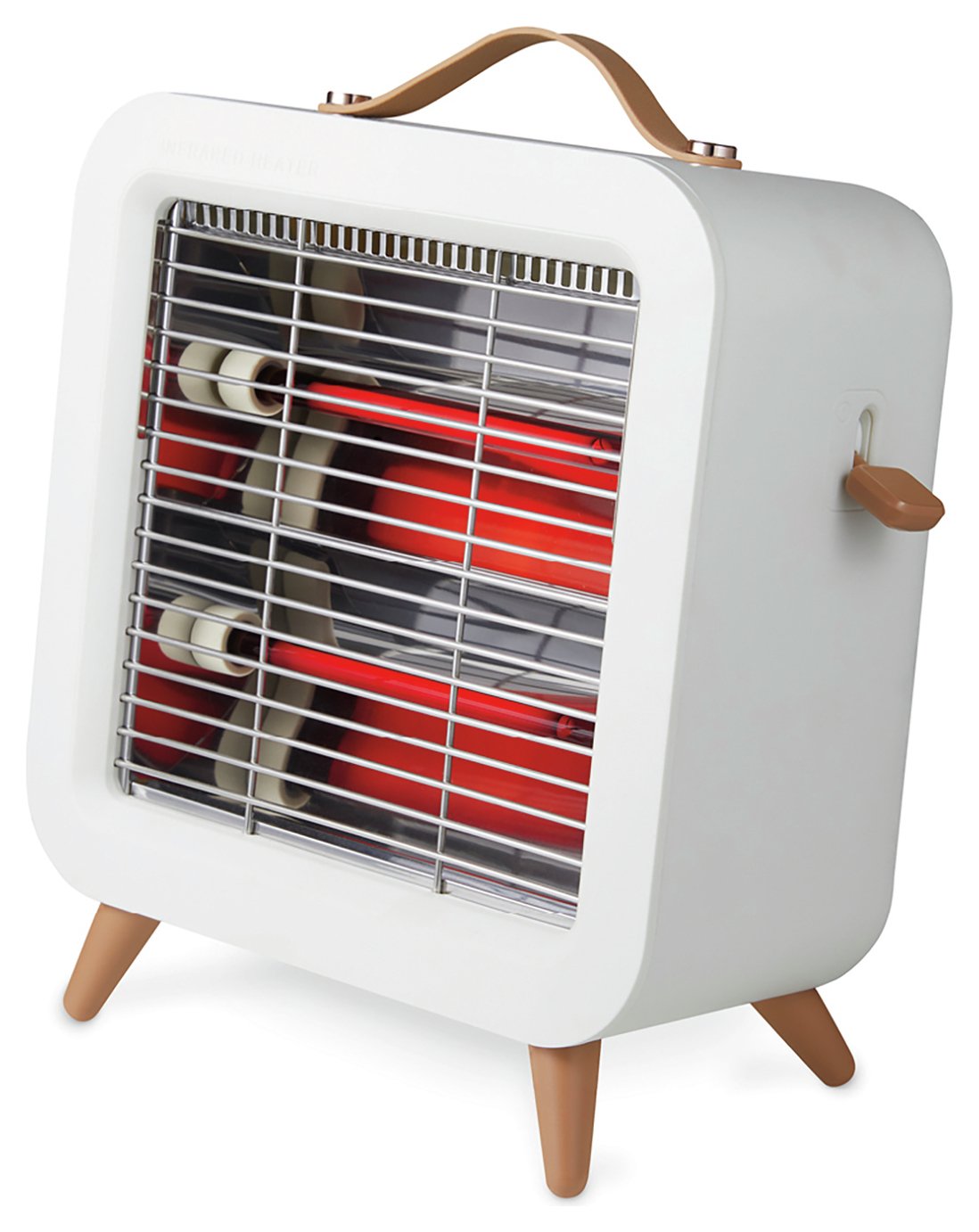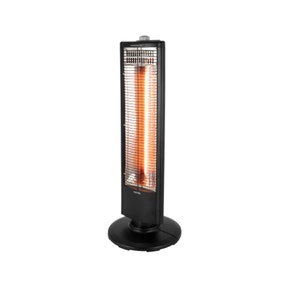Are infrared heaters cheap to run? For targeted heat they could be better value than an oil-filled radiator, say experts
Heating experts explain what you need to know about the cost to run an infrared heater


Infrared heaters have become a popular source of home heating recently, but it's not always clear where they stand in terms of energy efficiency. Asking the question are infrared heaters cheap to run is the first step to clarifying how much these devices will cost us this winter.
Traditionally, infrared heaters were used as the best patio heaters and not much else. Now, more people are using them indoors as well, in the bid to save energy and find other sources of warmth that don't require turning the central heating on.
But are infrared heaters cheap to run? We've spoken to energy experts and asked them how much electricity these devices use, and whether they're considered a cheap form of heating.
Are infrared heaters cheap to run?
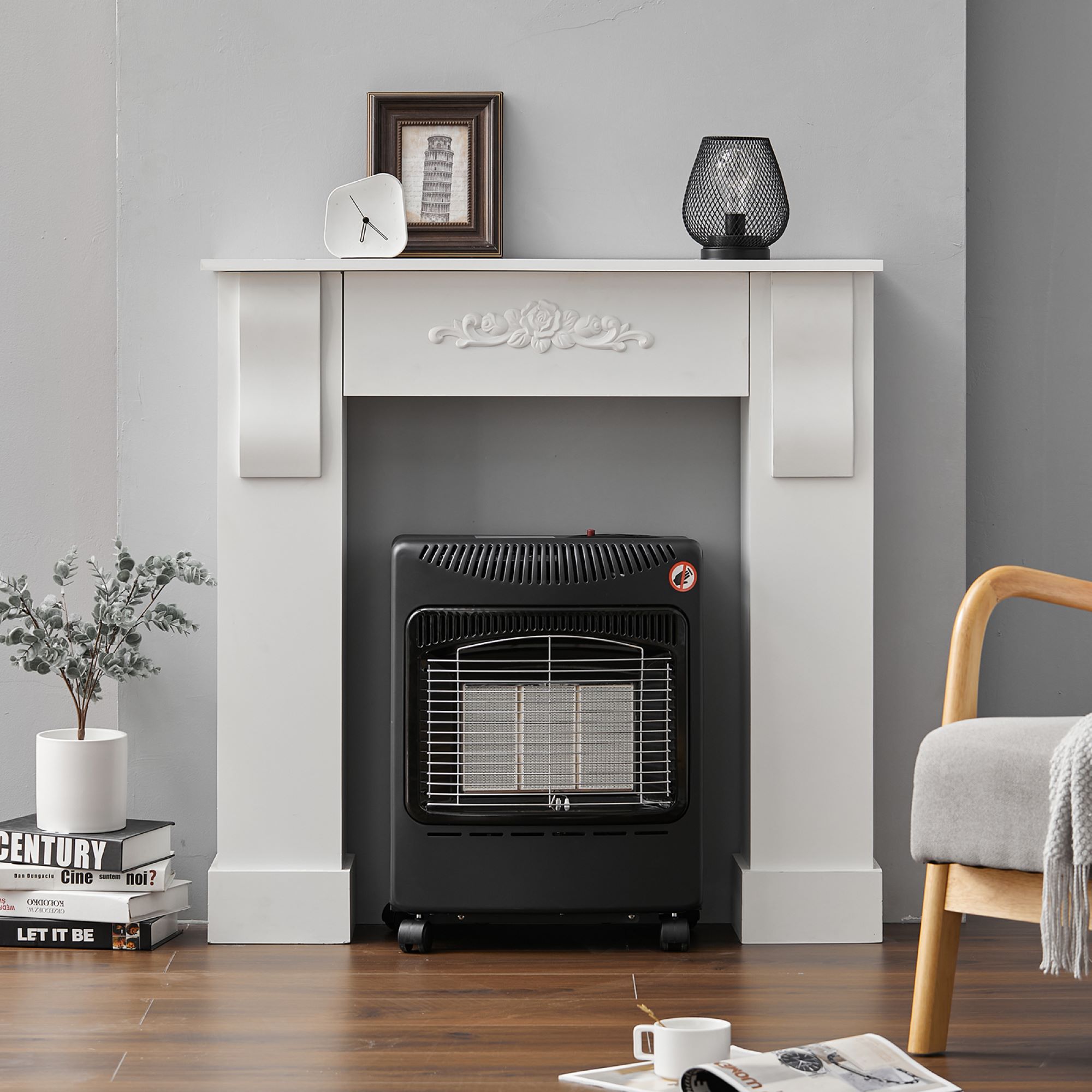
The good news is that yes, infrared heaters are generally cheap to run.
'Infrared heaters are efficient and cost-effective for targeted heating,' says Gordon Wallis, Energy Expert, Your NRG. 'For example, a 500-watt heater used for two hours a day costs about 24.5p daily, or roughly £89 per year under the current energy price cap.'
To work out the cost of your infrared heater, you should first find the wattage of the device. Divide this number by 1000 to get the kWh, which is how much energy the device uses per hour. So as in the example given by Gordon, a 500W infrared heater will use 0.5 kWh per hour of use. You then multiply this number by the current energy price cap (which as of October 2024, is 24.5p), which gets you the cost per hour. It's the same formula you'd use to work out the cost of running a dehumidifier, and any other electrical home device.
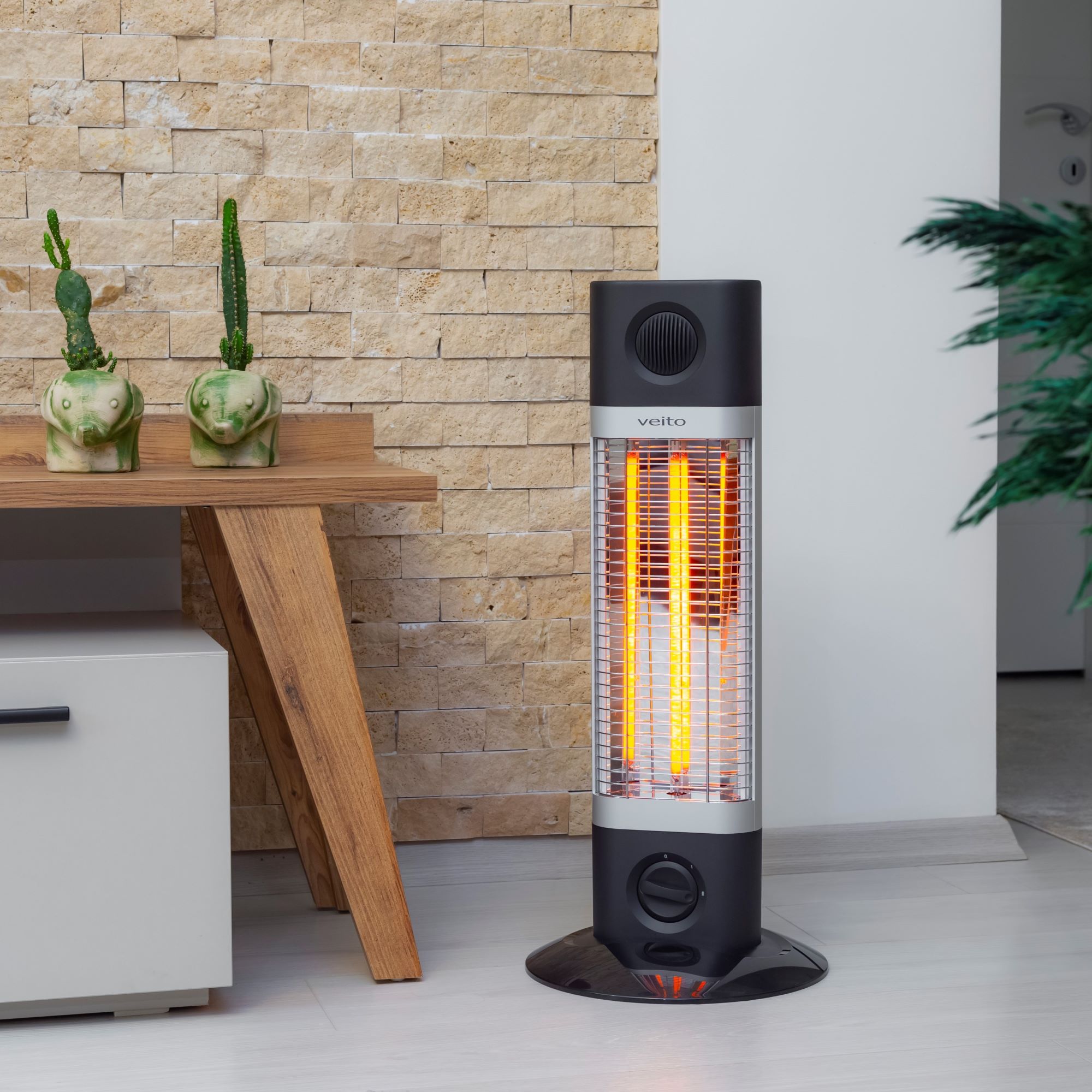
So while the answer to are infrared heaters cheap to run is thankfully a yes, it's important to know the wattage of your own heater to know for sure. Just like with the best electric heaters, the higher the wattage, the more energy the device uses, and the more expensive it will be to run.
So, if your infrared heater uses 2000W, it will cost around 49p per hour to run, which is just under £1 for a couple of hours. That's 4x as much as a 500W heater.
When to use infrared heaters
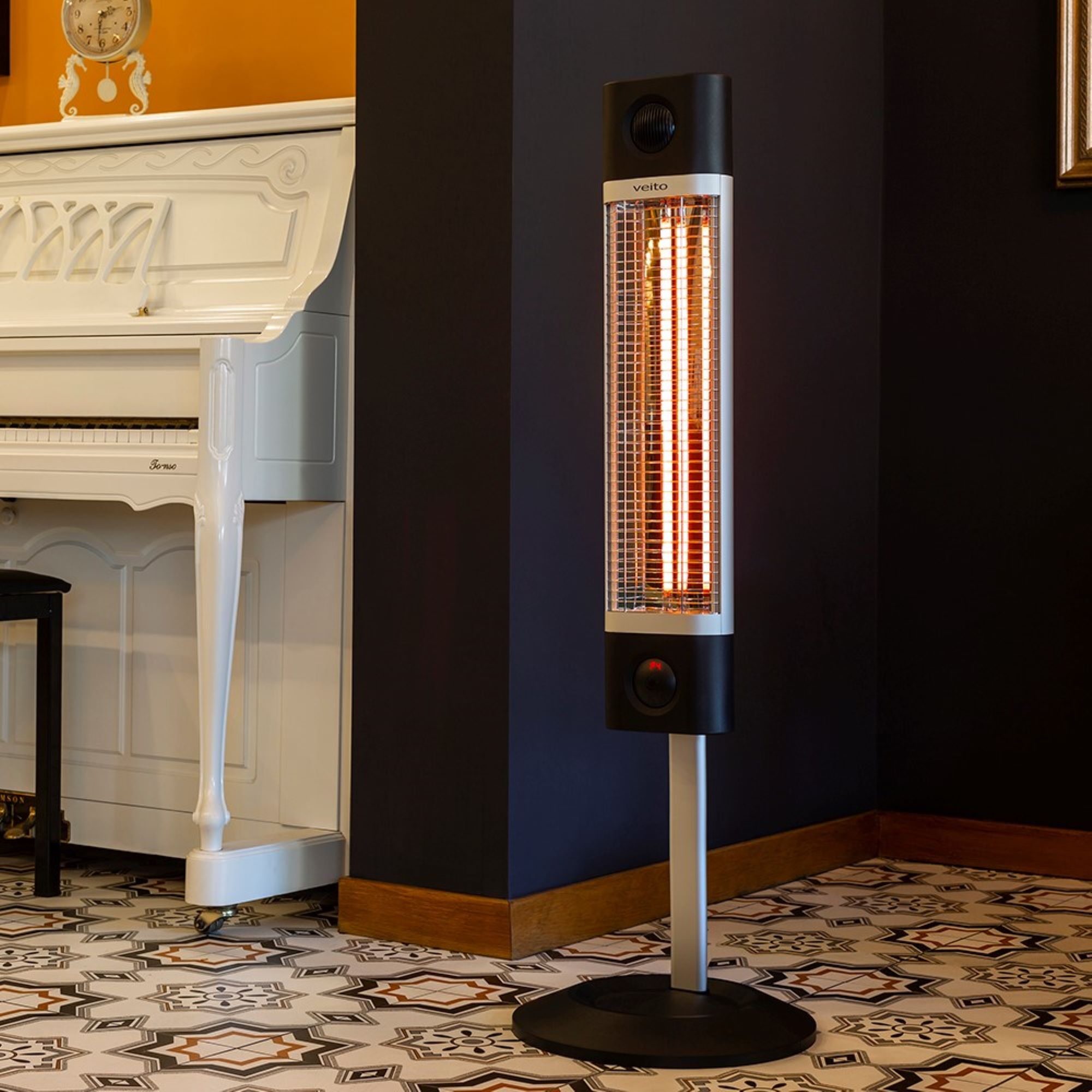
With the different forms of heating available, it can be confusing to know the most efficient way to heat a home. According to energy experts, infrared heaters are best used as a focused form of heating, rather than to heat the whole house.
'For whole-home heating, gas central heating remains the cheapest due to lower gas prices,' Gordon explains. 'The best oil-filled radiators can also be an economical option for some households, depending on market conditions and system efficiency. However, for individual rooms, infrared heaters are often the most economical choice, as they heat spaces directly without wasting energy on the surrounding air.'
Nicholas Auckland, Heating and Energy Expert at Trade Radiators agrees. 'Infrared heaters do tend to compete with gas heating for cost-efficiency in smaller, more targeted areas or for intermittent use, for example in a spare room when a guest is staying, or in the living room when you choose to have the central heating turned off.
'Use of infrared heaters is much better than any other type of heater when you're in a situation where you need instant, focused warmth without heating the whole room,' he summarises.
Where to buy an infrared heater
FAQs
Do infrared heaters use a lot of electricity?
Infrared heaters vary in the amount of electricity they use, but in general, they don't tend to use much - especially in comparison to electric heaters.
'Infrared red heaters focus heat directly on objects and people rather than trying to heat the air, where there is often a lot of heat lost due to draughts, open doors, open windows etc.,' Nicholas from Trade Radiators explains. 'This allows them to operate effectively at lower wattages compared to other electric heaters, which is why some will work at 500W while electric fan heaters generally work at 2000W.'
Are infrared heaters cheaper than radiators?
If your radiators are powered by gas central heating, infrared heaters will not be cheaper to run. This is because gas remains the lowest form of energy (capped at 6.24p, compared with the electricity cap of 24.5p).
'A boiler rated at 24kW would cost roughly £1.50 per hour for full usage, and this would heat multiple rooms, rather than a single area which is what an infrared heater would heat,' Nicholas explains. 'This makes it generally better in terms of costs to use central heating, especially considering you can isolate specific radiators to prevent them from heating up, which would save even more money.'
However, infrared heaters are ideal for targeted heating, as unlike radiators, they can be placed in a specific location. So, if you just want to heat one area in one room for a short period of time, it would be more economical to use an infrared heater than turning the heating on - especially because some radiators can take a while to heat up.
Get the Ideal Home Newsletter
Sign up to our newsletter for style and decor inspiration, house makeovers, project advice and more.

Katie has been writing freelance since early 2022, specialising in all things homes and gardens, following achieving a Masters in Media and Journalism. She started out writing e-commerce content for several of Future’s interior titles, including Real Homes, Gardeningetc, Livingetc, and Homes and Gardens. Since then she’s been a regular contributor on Ideal Home’s digital team, covering news topics, how-to guides, and product reviews.
-
 Zoe Ball's colourful kitchen island shows how easy it is to create a characterful cooking space - here's how she did it
Zoe Ball's colourful kitchen island shows how easy it is to create a characterful cooking space - here's how she did itBeing brave with colour will reap huge rewards
By Holly Cockburn
-
 7 plants that will make your patio smell gorgeous - the top fragrant picks experts recommend potting up
7 plants that will make your patio smell gorgeous - the top fragrant picks experts recommend potting upFrom aromatic flowers to fragrant herbs
By Kayleigh Dray
-
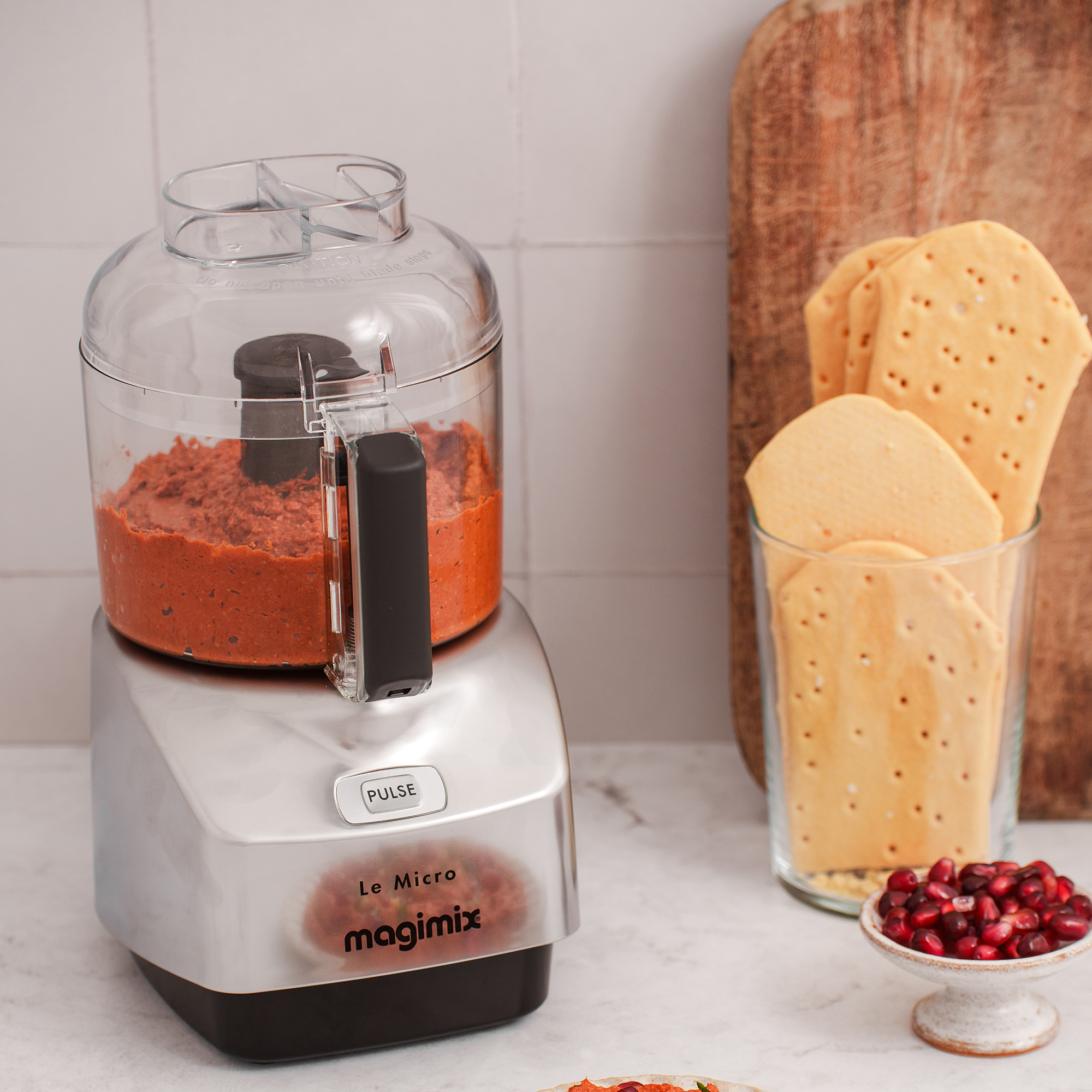 I won't gatekeep - Magimix's new small kitchen-friendly mini chopper is my secret to delicious lazy dinners
I won't gatekeep - Magimix's new small kitchen-friendly mini chopper is my secret to delicious lazy dinnersMy homemade pesto pasta has never been better
By Holly Cockburn
-
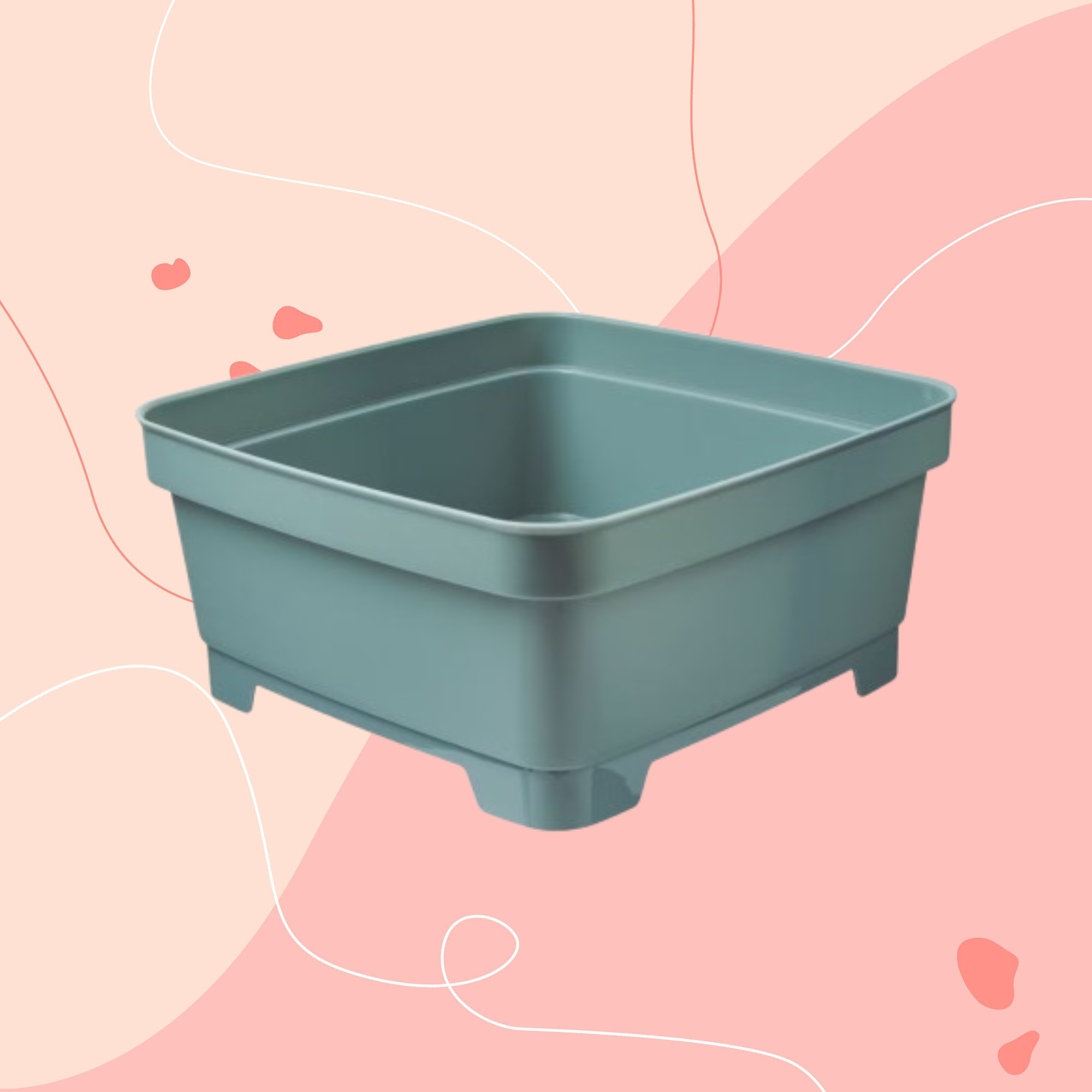 Aldi is releasing a budget alternative to the cult Joseph Joseph washing up bowl – it’s just £4.99
Aldi is releasing a budget alternative to the cult Joseph Joseph washing up bowl – it’s just £4.99The Joseph Joseph washing up bowl is an Ideal Home favourite - now we can't wait to try Aldi's alternative
By Kezia Reynolds
-
 I just bought my first home, and this £10 buy was the very first thing I bought for it to make it feel warmer and secure
I just bought my first home, and this £10 buy was the very first thing I bought for it to make it feel warmer and secureIf I did it all again, this would still be my very first buy
By Rebecca Knight
-
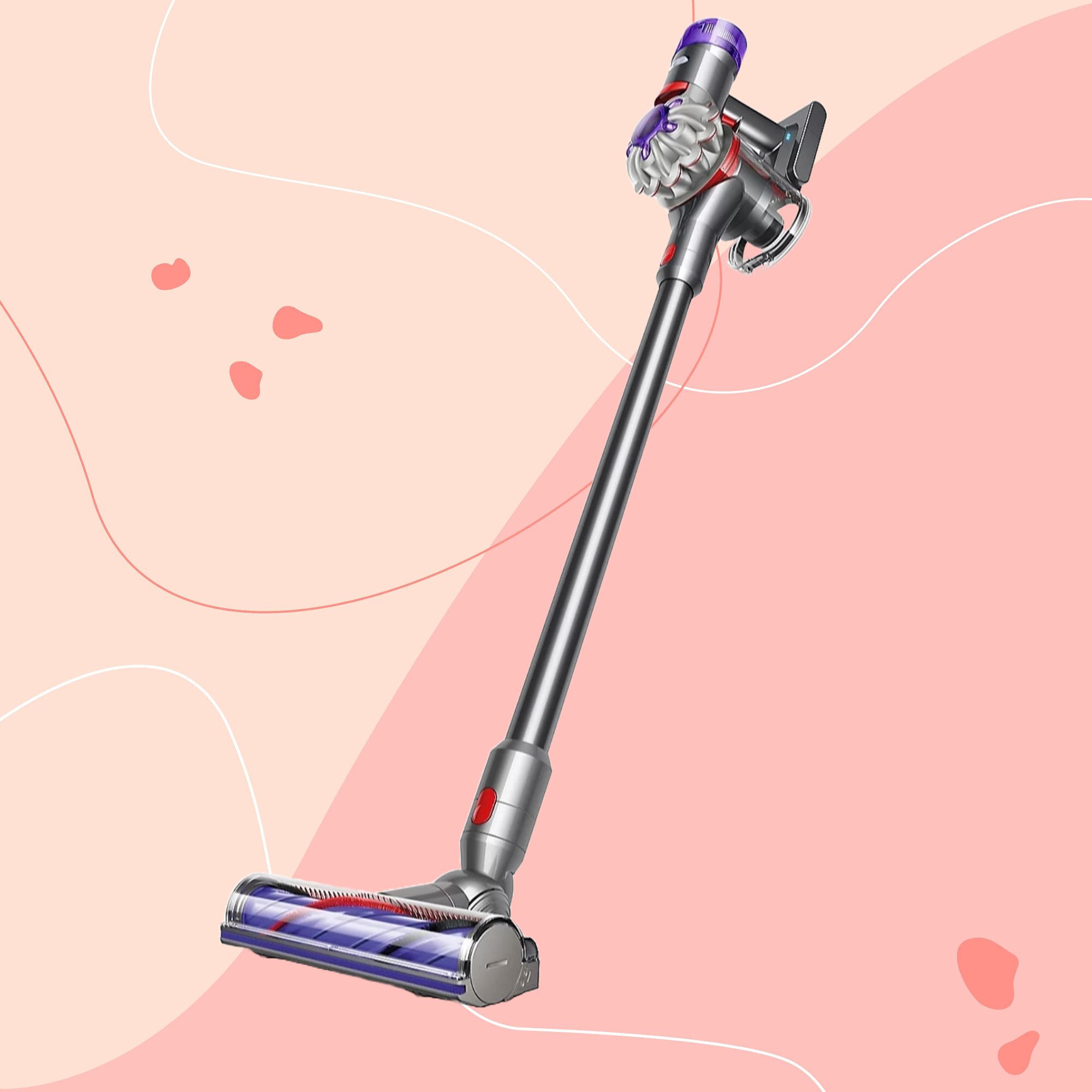 It’s normally impossible to find a Dyson vacuum for under £250 — but QVC has slashed the price of their bestselling models for a limited time
It’s normally impossible to find a Dyson vacuum for under £250 — but QVC has slashed the price of their bestselling models for a limited timeRun don’t walk to pick up the brand’s bestselling model for under £230 before it sells out
By Lauren Bradbury
-
 Catherine Zeta-Jones has revealed the cleaning product she swears by to keep her home fresh - and it’s just £8 on Amazon
Catherine Zeta-Jones has revealed the cleaning product she swears by to keep her home fresh - and it’s just £8 on Amazon'I use it on my counters. I use it on my walls. I use it on my doors. When I smell it, I know my house is clean.'
By Kezia Reynolds
-
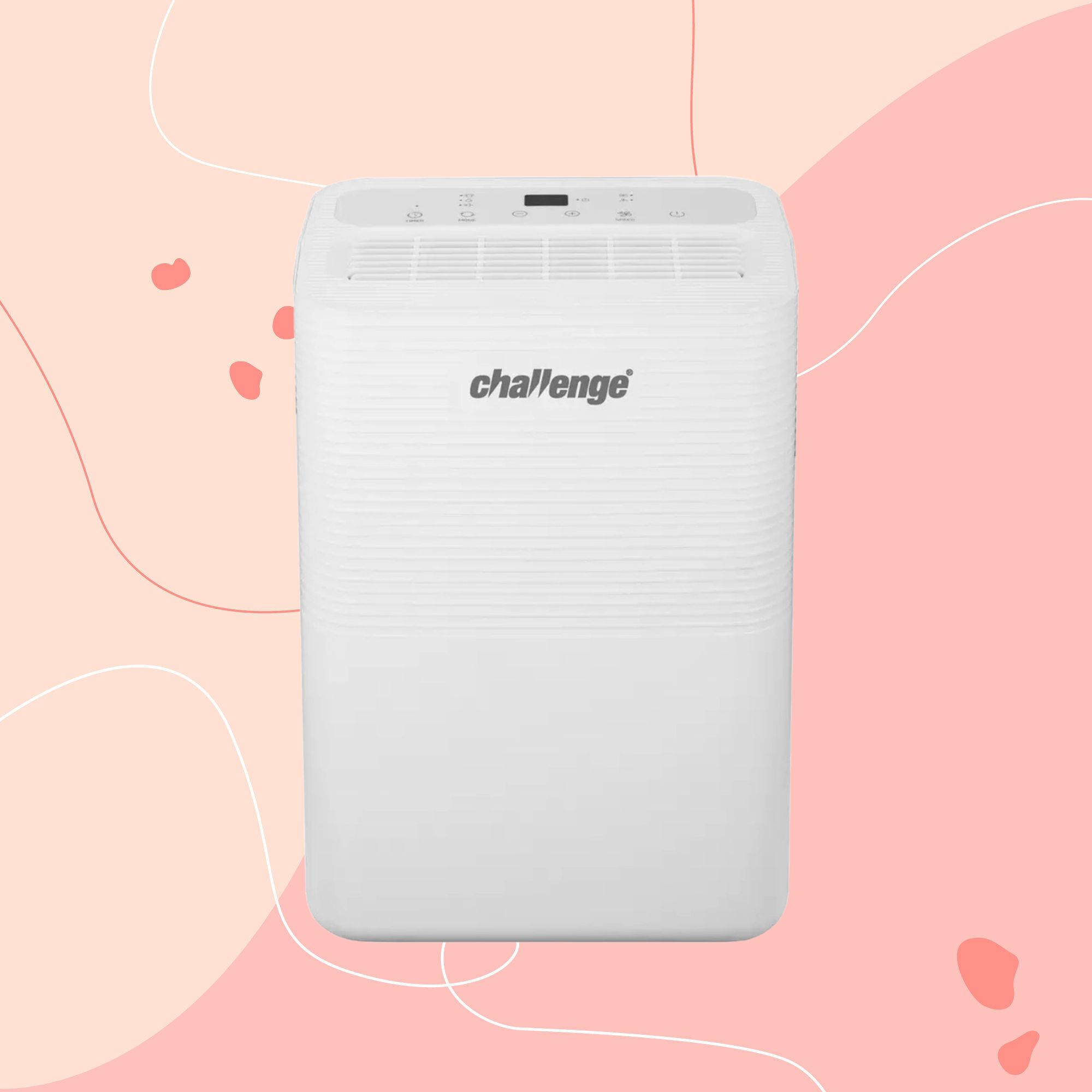 I tested the 12L Challenge dehumidifier in my damp Victorian home over winter — I haven’t spotted any signs of mould for the first time in five years
I tested the 12L Challenge dehumidifier in my damp Victorian home over winter — I haven’t spotted any signs of mould for the first time in five yearsThe Challenge 12L dehumidifier doesn’t have too many bells and whistles, but I can already see the difference it’s made to my damp home
By Lauren Bradbury
-
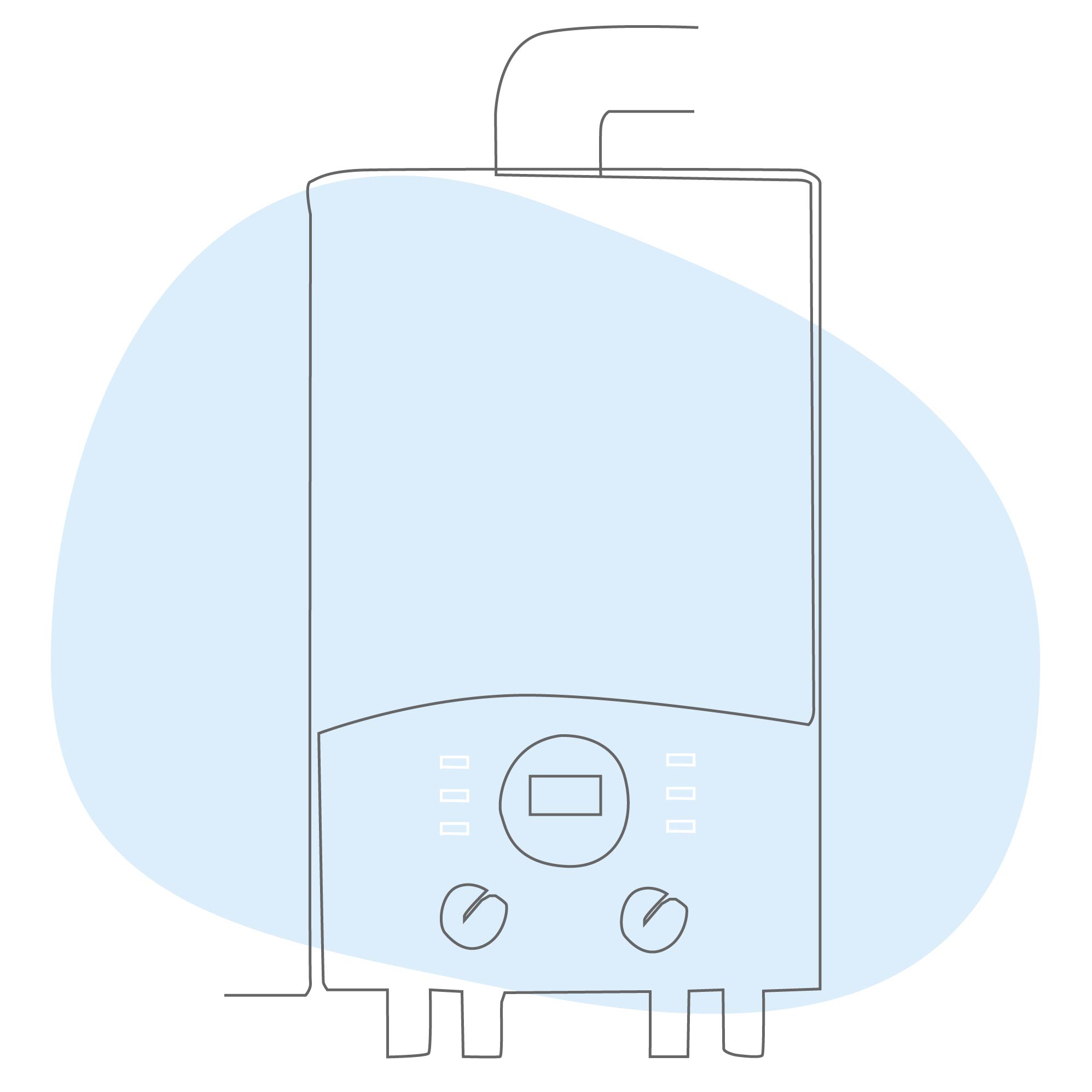 What is boiler flow temperature? Heating experts urge you to check yours now as you could be overpaying on your energy bills
What is boiler flow temperature? Heating experts urge you to check yours now as you could be overpaying on your energy billsTurning this little-known number down just a few degrees can result in some serious savings
By Lauren Bradbury
-
 Stacey Solomon has shared 5 nifty wardrobe storage hacks to make getting ready in the morning easier — and they're genius
Stacey Solomon has shared 5 nifty wardrobe storage hacks to make getting ready in the morning easier — and they're geniusThese five wardrobe storage hacks are a gamechanger
By Katie Sims
-
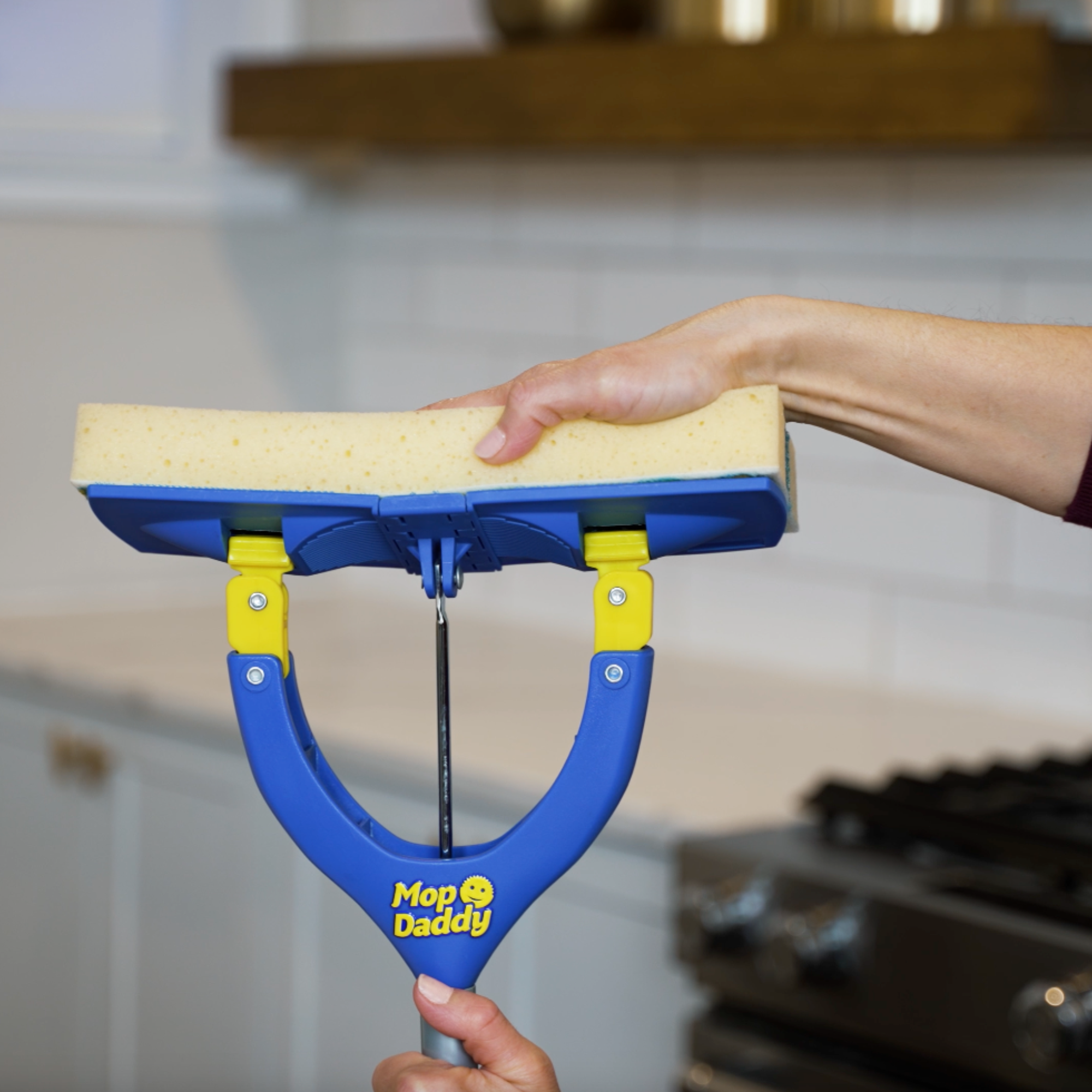 Cult cleaning brand Scrub Daddy has just launched a brand new butterfly mop — could it be the ultimate solution for banishing stubborn marks on your floor?
Cult cleaning brand Scrub Daddy has just launched a brand new butterfly mop — could it be the ultimate solution for banishing stubborn marks on your floor?We're obsessed with all things Scrub Daddy
By Kezia Reynolds
